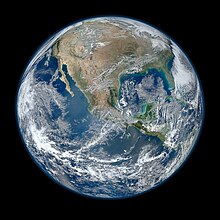the ability to maintain ecological. I social. and economic benefits over time.

Sustainability is the ability to exist constantly. In the 21st century, refers generally to the ability to exist of the biosphere and human civilisation. Defined also as the process of people maintaining change in a balanced environment, in which the exploitation of resources, the direction of investments, the orientation of technological development and institutional change are all in harmony and enhance both current and future potential to meet human needs and aspirations. For many in the field, sustainability is defined through the following interconnected domains or pillars: environment, economic and social, which according to Fritjof Capra is based on the principles of Systems Thinking. Sub-domains of sustainable development have been considered also: cultural, technological and political. While sustainable development may be the organizing principle for sustainability for some, for others, the two terms are paradoxical (i.e. development is inherently unsustainable). Sustainable development is the development that meets the needs of the present without compromising the ability of future generations to meet their own needs. Brundtland Report for the World Commission on Environment and Development (1987) introduced the term of sustainable development.
Sustainability can also be defined as a socio-ecological process characterized by the pursuit of a common ideal. An ideal is by definition unattainable in a given time and space. However, by persistently and dynamically approaching it, the process results in a sustainable system. The study of ecology believes that sustainability is achieved through the balance of species and the resources within their environment. In order to maintain this equilibrium, available resources must not be depleted faster than resources are naturally generated.
Modern use of the term sustainability is broad and difficult to define precisely. Originally, sustainability meant making only such use of natural, renewable resources that people can continue to rely on their yields in the long term. The concept of sustainability, or Nachhaltigkeit in German, can be traced back to Hans Carl von Carlowitz (1645–1714), and was applied to forestry.
Healthy ecosystems and environments are necessary to the survival of humans and other organisms. Ways of reducing negative human impact are environmentally-friendly chemical engineering, environmental resources management and environmental protection. Information is gained from green computing, green chemistry, earth science, environmental science and conservation biology. Ecological economics studies the fields of academic research that aim to address human economies and natural ecosystems.
Moving towards sustainability is also a social challenge that entails international and national law, urban planning and transport, supply chain management, local and individual lifestyles and ethical consumerism. Ways of living more sustainably can take many forms from reorganizing living conditions (e.g., ecovillages, eco-municipalities and sustainable cities), reappraising economic sectors (permaculture, green building, sustainable agriculture), or work practices (sustainable architecture), using science to develop new technologies (green technologies, renewable energy and sustainable fission and fusion power), or designing systems in a flexible and reversible manner, and adjusting individual lifestyles that conserve natural resources.
"The term 'sustainability' should be viewed as humanity's target goal of human-ecosystem equilibrium (homeostasis), while 'sustainable development' refers to the holistic approach and temporal processes that lead us to the end point of sustainability." (305) Despite the increased popularity of the use of the term "sustainability", the possibility that human societies will achieve environmental sustainability has been, and continues to be, questioned—in light of environmental degradation, climate change, overconsumption, population growth and societies' pursuit of unlimited economic growth in a closed system.

